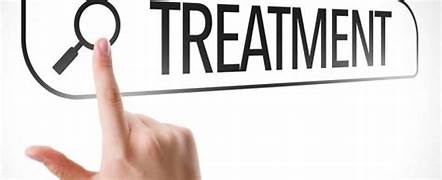Finding the Right Rehab: Choosing a Program That Matches Your Needs
Seeking help for addiction is a courageous step toward recovery, but finding the right rehabilitation program can be overwhelming. With so many options available, it’s essential to choose a program that aligns with your specific needs, circumstances, and recovery goals. Here’s a guide to help you determine which rehab program is best for you.
Assess Your Needs and Addiction Severity
The first step in choosing the right rehab is evaluating your addiction’s severity and any underlying health conditions. Addiction exists on a spectrum, and treatment needs vary accordingly. If you have a long-term addiction or struggle with multiple substances, a residential or inpatient rehab program may be necessary. For those with milder addictions or strong support systems at home, outpatient treatment could be a more suitable option.
Types of Rehabilitation Programs
Rehabilitation programs come in different forms, each catering to varying levels of addiction and personal circumstances:
- Detox Programs: For individuals with severe substance dependence, medical detox is often the first step. It provides medical supervision to manage withdrawal symptoms safely.
- Inpatient Rehab: Also known as residential treatment, this program provides 24/7 care in a structured environment, ideal for individuals with severe addictions or co-occurring mental health disorders.
- Outpatient Rehab: Allows individuals to receive treatment while maintaining their daily responsibilities. It includes therapy sessions and medical support but does not require staying at a facility.
- Partial Hospitalization Programs (PHPs) and Intensive Outpatient Programs (IOPs): These programs offer a higher level of care than traditional outpatient rehab but still allow individuals to live at home.
- Sober Living Homes: A supportive living environment for individuals transitioning from inpatient rehab to independent life.
Consider Specialized Treatment Programs
Different rehabilitation centers specialize in various treatments. Some focus on specific substances like opioids or alcohol, while others provide holistic approaches, faith-based programs, or dual-diagnosis treatment for those with co-occurring mental health disorders. It’s important to choose a facility that aligns with your personal preferences and medical needs.
Evaluate Treatment Approaches
Rehab programs utilize different treatment approaches, including:
- Behavioral Therapy: Cognitive-behavioral therapy (CBT) and dialectical behavior therapy (DBT) help individuals identify and change harmful behaviors.
- Medication-Assisted Treatment (MAT): Effective for opioid and alcohol addiction, combining medication with therapy.
- Holistic Approaches: Includes meditation, yoga, acupuncture, and nutritional therapy.
- 12-Step Programs & Non-12-Step Alternatives: Some individuals benefit from structured recovery groups like Alcoholics Anonymous (AA) or Narcotics Anonymous (NA), while others prefer secular programs like SMART Recovery.
Check Accreditation, Staff Credentials, and Reviews
A reputable rehab center should be accredited by organizations such as The Joint Commission or the Commission on Accreditation of Rehabilitation Facilities (CARF). Additionally, qualified medical staff, licensed therapists, and positive patient reviews are essential indicators of a facility’s credibility.
Consider Location, Cost, and Insurance Coverage
The location of the rehab facility plays a role in recovery—some individuals prefer centers close to home, while others benefit from a change in environment. Additionally, understanding the cost of treatment and verifying insurance coverage can help make rehab financially feasible.
Final Thoughts
Choosing the right rehab program is crucial to achieving long-term sobriety. By assessing your needs, researching treatment options, and considering factors like cost, accreditation, and location, you can find a program that best supports your journey to recovery. Seeking professional guidance can also help ensure you make an informed decision that leads to a healthier, addiction-free life.
